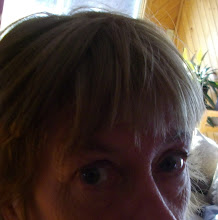Inside science's quest to solve the mystery of consciousness.
by Craig Hamilton
Apparently the mind/body "problem" is as enigmatic as ever. In this article the author broadly explores what David Chalmers calls the hard problem -- the question of how physical processes in the brain give rise to subjective experience. Does the brain create consciousness? Can reductionist scientific theory explain our most basic experience of being alive? If consciousness is, in fact, created by our brain, what does this say about the truth of our perceived reality?
Some excerpts from the article:
Francis Crick
Co-discoverer of the DNA helix
"You, your joys and sorrows, your memories and your ambitions, your sense of personal identity and free will, are in fact no more than the behavior of a vast assembly of nerve cells and their associated molecules...You are nothing but a pack of neurons"
Paul Bloom
Developmental psychologist, describing a conversation with his six-year-old son Max about the function of the brain:
"Max said ....it is very important and involved in a lot of thinking--but it is not the source of feeling sad or dreaming or loving his brother. Max said that’s what he does, though he admitted that his brain might help him out."
Bloom, who clearly aligns himself with the neuroscientific perspective, goes on to explain that "studies from developmental psychology suggest that young children do not see their brain as the source of conscious experience and will. They see it instead as a tool we use for certain mental operations. It is a cognitive prosthesis, added to the soul to increase its computing power." And, Bloom laments, "This understanding might not be so different from that of many adults."
Andrew Newberg
Radiologist at U.Penn Med Center, meditation researcher and author of The Mystical Mind and Why God Won’t Go Away
"When people have mystical experiences, they universally report that they have experienced something that is more real than our everyday material reality. ...which means that the brain perceives God, or pure consciousness, to be more real than anything else. So if the brain is what determines what is real and what isn’t, and this is a universal experience of human brains across cultures, where does that leave us?"
"The belief that matter is primary provides a good basis for explaining the material world", he said, "but it can give no clear answer as to where consciousness comes from. On the other hand, if we take a religious perspective and say that consciousness is primary, it’s not so easy to explain the existence of matter. My own feeling is that perhaps consciousness and matter are two ways of looking at the same thing. But I think the bottom line is that we really don’t know yet."
Towards the end of the article the author suggests that in an ironic turn of events, brain science just might end up supporting humanity's spiritual aspirations in a way no one expected, and leaves us with this challenge -- can we find a world view big enough to include it all?
What about the bond ?
What about the mystical Unity?
- Bruce Cockburn
~~~~
Sunday, April 12, 2009
Subscribe to:
Post Comments (Atom)

No comments:
Post a Comment